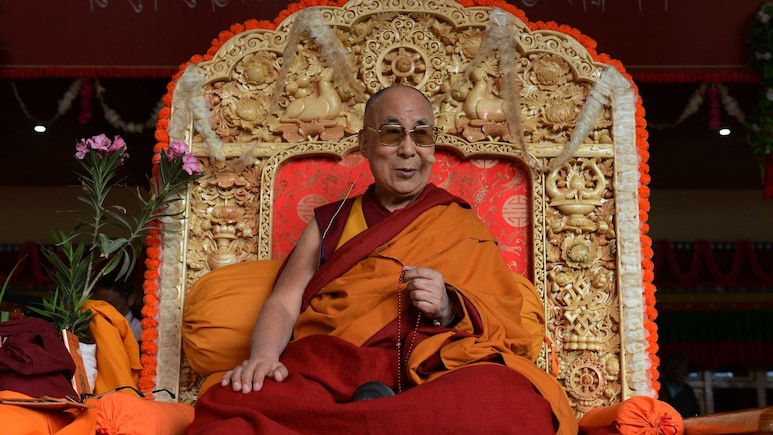
India Backs Dalai Lama’s Right to Choose His Successor
India has firmly supported the Dalai Lama’s authority in determining his successor, sending a strong diplomatic message that directly counters China’s longstanding claim over the succession process of the Tibetan spiritual leader. In a significant political stance, New Delhi stated that “nobody else has the right” to interfere in this deeply religious and cultural matter, reiterating its respect for the spiritual traditions of Tibetan Buddhism.
Strong Rebuttal to China’s Repeated Assertions
This statement comes as a clear response to China’s persistent assertions that it will control the selection of the next Dalai Lama through its political framework, including the controversial “Golden Urn” method. China claims it holds the authority to appoint the next Tibetan leader — a stance widely seen as part of its efforts to exert control over Tibet and suppress dissent. India’s rejection of this claim underscores its growing willingness to challenge Beijing’s narrative on sensitive issues.
Support Rooted in Religious Freedom and Human Rights
Indian officials emphasized that the succession of the Dalai Lama is a matter of religious freedom, and only the current Dalai Lama and the Tibetan Buddhist community have the moral and spiritual right to make such a decision. This aligns with India’s broader foreign policy stance of supporting cultural rights, religious freedom, and self-determination, particularly in the context of the exiled Tibetan community, many of whom reside in India.
Strategic and Symbolic Timing
India’s statement also comes at a time of heightened India-China tensions across various fronts — from border disputes in Ladakh to competition in the Indo-Pacific. The timing suggests a deliberate move to assert India’s support for Tibetan autonomy and spiritual traditions, while subtly signaling its geopolitical opposition to Chinese authoritarianism.
Conclusion: A Bold Diplomatic Message
India’s open support for the Dalai Lama’s succession choice is not just a religious or cultural statement—it is a powerful diplomatic gesture that challenges China’s aggressive posturing on Tibet. As the spiritual leader ages, the succession issue is expected to grow in importance, and India’s position could have long-term implications for the geopolitical landscape of the region. With this stance, New Delhi has drawn a clear line — Tibet’s spiritual future should be decided by Tibetans, not by the Chinese Communist Party.